EDGAR 20 AMERICAN FOREIGN POLICY IN A UNIPOLAR WORLD
13 LA FERTILIDAD FISICA DEL SUELO EDGAR AMÉZQUITA C115 WILLIAM L ANDREEN EDGAR L CLARKSON PROFESSOR OF
3.%20Edgar%20Amezquita
ADOPTED FROM UNSOM CPS CASE CPSI010 EDGAR CAMPBELL CONTRIBUTING
AMERIKA EDGAR ALLAN POE EDGAR ALLAN POE (18091849)
AUTORIZA AL LIC EDGAR CONTRERAS MAC BEATH A SUSCRIBIR
The United States is not a great power, it is not a super power, but instead it is the undeniable hyper power of the world
Edgar
American Foreign Policy in a Unipolar World
Robert Edgar
June 2, 2005
Ethics of Development in a Global Environment
Prof. Bruce Lusignan
The United States is not a great power, it is not a super power, but instead it is the undeniable hyper power of the world. Economic and military dominance combined with a geographical landscape abundant in resources and lacking proximate attackers have established this nation as a juggernaut in the international community. As the giant continues to grow and strengthen its grip on the international order, the rest of the world scatters to find its place in the system. Some choose to jump on the back of the giant, providing it with its necessities for expansion and forming alliances beneficial for them. Others fear the presence of the US inside their boundaries and cringe at the thought of being crushed. Yet they stand opposed to its power and seek any means necessary in order to secure themselves and challenge the dominance of the overwhelming force. In an alarming trend that not only threatens US supremacy but also the worlds security, these “rogue nations” have shown signs of seeking Weapons of Mass Destruction in order to ensure a comfortable place in the giant’s world.
In the coming years it is possible that the largest threat to the US will be the issue of proliferation of Weapons of Mass Destruction (WMD) amongst rogue nations. The manner in which the unipolar power of the world deals with this issue will be critical for the future. It is clear that the world is headed towards a time that could determine the international order for years to come. Either the US continues to establish its power or the world begins to slowly advance towards multipolarity. In order to understand this threat in particular, there will first be a thorough analysis of the current international system, emphasizing the power of the US and its strong relationship with the other higher powers. Then it will be established that rogue nations are the most likely to challenge the US, specifically by pursuing WMD. The threat of the WMD in the hands of these rogue nations will be assessed and strategies for focusing on the problem and managing issues will be discussed.
The Current International Structure
In understanding the new international order of today one must start at the top with the United States. After the fall of the Soviet Union the US enjoyed the seat as the only super power in the world. Combined with nuclear capabilities unchallenged by any other nation or combination of nations, the US had the victory of the Cold War to push it forward in the new unipolar world. To top off this victory, the Americans have continued to grow and expand their power. The Clinton era enjoyed a booming economy and unparallel advances in technology that allowed the nation to solidify its role as the economic leader of the world. The strength of the nation is reflected in its massive military prowess and its influence in the international social order. The following analysis will evaluate the strengths of the US in the unipolar system.
An economic analysis of US power shows that the US has an extremely high amount of leverage when it comes to economy. As the biggest and most powerful economy in the world, the US has managed to link its success to others countries. While many would say that this might not be a smart move because the country has to depend on other nations, it is actually one of the main reasons countries would not challenge the US. They have enacted the perfect strategy, first applied by Bismarck Germany, as it has placed itself in the center of the wheel and hub model.1 To reach this point the US has pursued foreign policies that make the world conducive to the capitalistic environment the US flourishes in. This has led to the new trend of globalization that has been a critical element in developing a system in which many countries create a significant economic relationship with the US. Walter Russel Mead refers to this as “sticky power” in the sense that it entices many countries to join because of economic benefits and then makes them stay by creating dependence to the system. This system has allowed the US to build the strongest economic machine in history that depends on the fuel of world markets to run. Over the past decade the US has added to its share of world product, manufactures, and high-technology production; increased its lead in productivity; and regained or strengthened its lead in many strategic industries.2

This in return has led to a military program that boasts power, size, and finesse. This military stands as the only armed force that could plausibly attain global power with the capability of fighting two full-fledged wars at the same time. It dominates every military aspect: technologically it is the most modern military in the world; it has extensive ground forces; the only Navy with transcontinental force; a prevailing air force; an overwhelming nuclear arsenal; and continued investment and development in communications, intelligence and military logistics and command.3 Not only does the US have leverage as a military power, it also exercises much power through the political arena. The US has vast amounts of control over the IMF, World Bank, the WTO and the OECD as well as very favorable relations with the booming economies of the EU and Japan. It can join forces with regional powers to make strong alliances in strategic places of the world. It also can choose to disregard international norms when it pleases, this evident by the war in Iraq. One cannot deny that in today’s world the US is the hyper power and the leader of the unipolar structure.
America does not just have economic, military and political strength. The nation has also begun to export its culture and ideals, described by Joseph S. Nye as “soft power”.4 The importance of this soft power can be easily overlooked, but it is a critical element of US dominance. American culture is expanding everyday into the lives of people all over the globe. They watch MTV and wrestling while they idolize American artists. This not only creates a great market for American entertainment goods it gives people around the world a way to relate to the US. They wear American clothes, listen to American music, and dream of some time living the American life in this country. Through foreign policy the US has made a point of stating that it is a defender of human rights and freedom. The appeal of democracy has thus grown all over the world mostly because of US persistence. Therefore, the US does not just boast an economy and military that makes the rest of the world submissive. Much of the world has voluntarily embraced many aspects of American culture and ideals. The result is a high degree of American power and influence that allows the US to be the world leader with very little dissention.
Power under the US
Under the US, there are basically three groups of nations. The first is the Great powers identified as the UK, Japan, China, France, Germany and Russia. These are still not competitive to the US, but they do hold significant influence in the political world in particular in their regions. Then there is a level of the middle powers, which have considerable regional influence, consisting of India, Indonesia, Brazil, Nigeria, Iran, Turkey, Egypt and South Africa. Then there is the rest of the world, which contains about 175 countries. The power of this system has a disproportional concentration at the top with the US and below the US, the great powers. Unfortunately for the rest of the world it is difficult to penetrate the top and to not have your fate determined by another power. This is usually the area where the rogue nations fit in, at the bottom struggling to maintain their autonomy. There are also exceptions of states that are middle powers and could act as rogue nations in order to secure a status as a great power.
Future Structure of the System
Most scholars agree that today the world is unipolar with the US at the head of power, but controversial views remain about which direction the world will turn in. Some, such as William C. Wohlforth (1999), argue that the world will invariably remain in this position for many years to come because of the power of the US. Others argue that there will be a turn towards multipolarity due to the maturing of other nations that does not allow the US to remain as a hegemonic power in their area.5 Eventually, other powers will challenge the US particularly in an economic and political sense. In spite of this controversy, one thing remains sure: The US is atop the world and there will be many efforts of smaller nations to maneuver into positions of greater power. Even in Wohlforth’s article, he concedes to the fact that there is certainly more room to shift power and make ones presence felt more in its region.6 The area to be challenged the most is entrance into status of great power by nations that are currently just regional powers. Other nations also persist to find a higher place in the world, as they seek methods of upping their command and potentially fitting in as a regional power or even as a great power. Regardless of unipolarity or multipolarity we are in a stage in history where a state can define where it will be in the world for a long time to come. This is where much of the concern falls though. As the world begins to adjust to its future status nations find any means possible in advancing their status. Unfortunately for the safety of the world, many nations have resulted to seeking weapons that threaten the lives of thousands and instill insecurity into the system.
Which countries will challenge the US?
When it comes to challenging US supremacy there are two main questions for countries to ask themselves. Can we succeed while not bringing ourselves down at the same time? Would we profit from not having the US at the top? Basically the issue is whether countries would benefit more from a multipolar system than they would in the current unipolar world. Arguably they would not as the US has set incentives for other countries to benefit from their relationship. Most of these benefits stem from a globalized society in which the interactivity of the world benefits many countries. The US has comfortably placed itself within the center of this system, making foreign countries become dependent on the US for their welfare. Therefore, it is not beneficial for any of the nations that hold significant power in the world (China, Japan and the EU) to challenge one of the key elements to its success and survival.
Economic challengers
The EU, Japan and China are the only economies that are comparable to the US. Nevertheless, the US is still larger than all of these economies and has a strong link to the functioning of each of them. The EU has had a very successful experience with the Euro, but it does not equate to the ability to challenge the US. Even when the Euro appreciates too much European countries begin to suffer due to declines in their exports and instability. The fact is that countries depend too much on the US for their economies to survive. The EU has hardly shown any cooperation beyond currency and is not likely to become an economic threat beyond any currency issues for the next several years. While China’s economy is continually growing it is still heavily dependent on the US for its market. Without the major exports to the US, that gets higher every year, China would not benefit from such a big economy. Therefore, it is to the countries advantage to maintain the US at the top and as an economic friend. Japan is in a similar situation as it depends on the US market for sales of its industrial goods. If any of these countries were to challenge the US economy they would be seriously hurting themselves at the same time. It is a sort of mutually assured economic destruction that keeps these countries from competing and instead has them cooperate.
The effort by the US to make the world safe for its economy has been constant during and after the Cold War. The US has persistently sought to open domestic markets to foreign competitors in order to create conditions for free trade and US investments in other nations. By opening countries economies to foreigners the US has been able to invest heavily in the well being of other nations, thereby linking them to the countries welfare. Therefore, any economic failure by the US has the potential to hurt the world economy in a major way. This has and will continue to keep countries from doing anything but cooperate with the economic juggernaut of the world.
Military Challengers
Many of the top countries in the world have been consistently growing their military. The one country that has the capability of catching up to the US is China who has recently increased its military power. Japanese Chief Cabinet Secretary Hiroyuki Hosoda has recently stated that "China, which has a great impact on security in this region, is pushing ahead with enhancing its nuclear and missile capabilities in modernizing its navy and air force while expanding marine activities. We need to continue to watch these moves in the future." While the US should take note of Chinese expansion it should not necessarily fear it. The Americans are still way ahead of China when it comes to military technology and capabilities. Furthermore, the one reason that the US does not need to worry about military attacks is its colossal nuclear arsenal. The presence of Mutually Assured Destruction is one of the strongest deterrents in history, and one that has kept the world from major conflict during part of the Cold War and all of the time since. Countries simply cannot try to inflict serious damage to the US if they always have the capability to retaliate with a devastating force. An arsenal of nuclear weapons as massive as the one possessed by the US practically eliminates all possibilities of an attack from any country, especially those with the most power.
Unconventional Threats
Yet US security is not completely guaranteed. Many countries may seek unconventional ways to attack the US using terrorist activities sponsored by rogue nations. This area presents one of the only ways to inflict damage in terms of casualties and bombs on US soil. While states rarely conduct these actions there have been many states that sponsor these activities and harbor terrorist groups. Although this is not a traditional military threat, it does threaten security of the US at home and has therefore become the target of US foreign policy in the last several years. The incentives for rogue nations to pursue this type of policy against the US are very high. In light of the preemptive doctrine that has dethroned a tyrant in Iraq simply because he was assessed as a US threat, leadership in several countries has made it a top priority to find ways to protect itself against a similar campaign. Currently Iran is the target of much concern as there have been several allegations of nuclear development. The possibility of the US switching the campaign from Iraq to Iran has troubled the current Iranian administration. Countries like Iran seek security in the form of a nuclear weapon and tactics that undermine US authority. They have little to lose, as their relationships with the US do not benefit them as they do the stronger nations of the world. Instead their relationships are a consistent threat to the power of the leaders of these nations that do not want to be overthrown by the US. There are similar cultural sentiments that breed anti-Americanism and promote the government to stand against western power. Therefore, countries that do not benefit from the US economically and have leaders who feel they are threatened by the new American foreign policy are the most likely to challenge the US by attaining new military power and sponsoring terrorist groups.
Gaining power through WMD
Often WMD can make a critical difference to the military capability and threat of nations. They create enough fear amongst other nations that they attract the utmost attention and alarm for neighbors. In particular the proliferation of nuclear weapons is feared the most because of the utter destruction that a nuclear weapon can inflict. These concerns mostly affect neighboring states of rogue nations. They are the ones that worry of unprovoked attacks, destruction of cities, and reckless use of the weapons. A state that previously did not have nuclear capabilities could easily propel itself as a force to reckon in its region with the launch of a nuclear program and the attainment of several warheads. Therefore, states could potentially proliferate because it is a norm in becoming a great power. Normally, the great powers have nuclear weapons; therefore having a nuclear weapon would require recognition of the state as a formidable power. Even domestic politics lead many countries to seek to proliferate because of a confrontational nature or to please their citizens. Either way, the proliferation of nations causes much distress in any region of the world.
Terrorism, WMD and Rogue nations
WMD often do not directly threaten the safety of nations that are not near the state. Even more importantly, the possession of a few nuclear weapons by a small state seems to be hardly threatening to the vast arsenal of the US. But in the post 9/11 world the US feels directly endangered by terrorism more than anything else. In particular, the American people dread the use of a nuclear, chemical or biological weapon by a terrorist group the most. This is where the two threats combine to challenge the stability of the US. A state sponsored terrorist attack involving WMD would be a serious blow to the American people and could cause chaos anywhere in the world.7 Earlier the military strength of the US was discussed in order to illustrate the unlikelihood of a military challenger to the US. Terrorism though works through tactics that the military cannot fully prevent. While no country in the world can challenge the military, a single group of terrorists can inflict a surprising amount of damage on the US people and psyche. This has become the top concern for US domestic security.
While assessing the likelihood of these events is difficult, the US has realized that the combination of a rogue nation, weapon of mass destruction and terrorist group is not only plausible but also deadly. Rogue nations have the incentive to challenge the US and intimidate them into not intervening into their affairs. Many of them already allow terrorist groups in their nations knowingly, and many have been alleged to fund terror. Most troublesome is that rogue nations have had the capabilities and dedication to develop nuclear weapons programs. They can do it in ways that are hidden from the US and even with the whole world watching as North Korea has done. With the development of biological and chemical weapons there are a number of ways that a rogue nation can help a terrorist group to inflict a massive attack on the US without even linking itself to the attacks. This has been the main cause of concern for many Americans that has led the administration to create the “War on Terror” after the September 11th attacks. Americans are consistently concerned with the terrorist threat, and although they do not believe the terrorists are winning the war, they are not confident that the government is either.
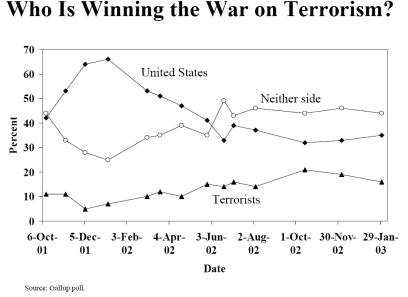
Impact of WMD on power
Although these are serious threats to the security of the world, one might argue that it is very unlikely that a rogue nation actually use any type of WMD on any other nation or even aid a terrorist group in using it on the US. Nonetheless, the issue at hand is not the use of WMD by rogue nations it is the proliferation of WMD. In itself, just possessing WMD has a grave impact on the world and the sentiments of other nations. In a security dilemma type of manner, one nation might perceive proliferation as a direct threat to their security and retaliate with their own proliferation, sparking a very scary chain reaction. However, the international community does not want to deal with nations that have already been able to proliferate their arsenals of nuclear, chemical or biological weapons. The US has not surprisingly arisen to be the premiere fighter against proliferation especially in rogue nations. Recently the US has made radical changes in their security policy that are aimed at preventing rogue nations from proliferating, but this change has challenged many of the established international norms.
Why does the US focus on WMD proliferation?
Now that the nature of the threat is assessed it is vital to establish its importance in comparison to the other threats of the world. Undoubtedly the biggest issue of the moment is rogue states and their possession of WMD, particularly the US-Iraqi war. The US has declared war on Iraq on the basis that it has a mandate to disarm and could potentially pose a serious threat to the US if it does not. In anticipating the threat to come, one must consider that other nations are in similar situations in which they threaten to proliferate, such as Iran, or have already proliferated, such as North Korea. Civil and ethnic warfare prove to be threats to international security, but they are not currently the most concerning issue and are not likely to be in the forefront over time.
One issue that is also in the spotlight is that of terrorism, especially in the post 9/11 world. In terms of timeliness, terrorism is as adequate as a concern as is the proliferation of WMD, but in other areas proliferation clearly exceeds the threat of terrorism. In the end they are both very closely linked. With the absence of a serious military and economic threat the US has the resources to try and limit the damage terrorist groups can make by focusing on rogue nations as their resources for means to inflict damage.
Role of the American Public
The American public also plays a significant role in the foreign policy focus. In the post 9/11 environment Americans have been highly fearful of future terrorist attacks. The main concern for the public has been to ensure our domestic security, even this means going to war. There has also been an unprecedented rally behind the flag effect at home. In the times right after the attacks, people were most supportive of the strategy that President Bush was employing to regain security. Therefore the President had a high degree of freedom in his actions.
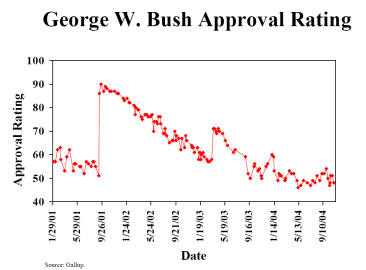
This resulted in the military campaign in Afghanistan and eventually culminated into the War in Iraq. The support for our actions in Afghanistan was widely supported by most Americans, as the public was experiencing a rally effect and the campaign seemed easy. It is clear to see how Americans were affected by 9/11.
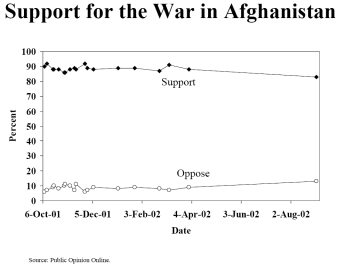
Yet, this effect could not last forever. As time has been passing the American public has become more critical of the administrations policy and support has fallen for the President. George W. Bush was able to experience high support for the current War in Iraq in its beginning stages, but the American public has become more critical as time goes on. As different events and findings have occurred in Iraq public support has been greatly shifting for the war:
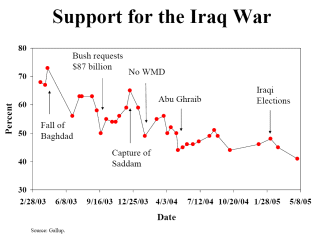
US reaction to Proliferation
This is where the issue of proliferation clearly becomes the biggest concern for the international community. It is not so much that rogue nations are actively seeking proliferation and are directly threatening to develop their WMD programs; it is the reaction that the US is having to the issue that is challenging the world order. The US has responded with a preventive war doctrine and preemptive strike policy that undermines diplomacy and establishes its power as a unilateral actor against the new threat of WMD proliferation. Since the terrorists groups are hard to target and therefore especially difficult to retaliate against and deter, the US has chosen to focus on rogue nations that harbor terrorists. This in turn has led to a policy in which the US has openly declared that it will attack states in which proliferation is imminent or which could potentially threaten the US and its safety. To add on to this the US has without exception given itself the right to act alone, freeing itself from the bound of its partners and global rules and institutions. This new doctrine has resulted in a “general depreciation of international rules, treaties, and security partnerships.”8 Such actions by the already most dominant nation in the world impose serious threats to other nations fearing the unconstrained vigilance of the US.
Foreign Policy, right focus but wrong approach
Whether or not the Bush Administration is executing the correct foreign policy to keep this nation safe is very questionable. One thing that they have gotten right is their targets though. While many scoff at President Bush’s poorly labeled “Axis of Evil” made up of countries that the administration has blacklisted, these nations do represent a logically sound focal point for US policy when considering security. Despite the lack of reason in calling these nations an axis of evil, the administration has closed in on the nations that will likely make or even just support the most significant moves against the US. Therefore the administration has concentrated on holding these countries down in order to maintain the stability of the unipolar system.
A big part of this decision is based on geography. While the US does little to stop rampant abuses in many places of the world it will make significant efforts in other places of the world where the threat is higher. Although many of these can be characterized by nations seeking to gain nuclear capabilities the fact is that if they do not directly threaten US security they will be overlooked. Therefore, countries and large areas such as most of Africa will not be targeted in the US foreign policy. The reason for this is that they have very little potential in disrupting the system in the world that the US leads. The exceptions in Africa could be Sudan and Somalia where there have been allegations of Al-Qaeda presence, but these nations receive relatively little attention compared to the others. In areas like Asia though, the US has plenty to lose. With its new nuclear potential North Korea could possibly challenge South Korea, where the presence of the US military is considerable, while also disrupting the security of the many countries around it. The US counts on the market gains from trade to many of these nations and a potential major distraction does not bid well with the world’s giant. The other major area is in the Middle East, where the presence of terrorist activity is pervasive. It is the center of the network of terrorism that has become the main target of domestic security in the last years. For obvious reasons, the US has paid the most attention to this area of the world.
Where the administration has failed is in its execution. The focus of the foreign policy can be justified easily in economic and security terms and maybe even on morality. The US often alludes to the pursuit of freedom and democracy for the whole world and has justified many interventions on this premise. In theory, the US is ridding the world of abusive and disruptive tyrants that threaten world security and oppress their citizens. The actions that have actually been taken against these countries are much more difficult to defend. The issue that jumps out is the War in Iraq. While many people can agree that world is safer without the presence of Saddam Hussein it is difficult to justify the military campaign against the long time dictator, especially since the US has not been able to find any signs of an advanced system to create WMD. The issue now has been that the world is safer without Hussein, but it is not significantly safer. The US violated the sovereignty of a nation based on incorrect intelligence and has struggled to convince the world that this is a just cause. Many countries and many people have reacted with anti-Americanism sentiment that is arguably damaging some of the US soft power. The administration is no longer the democracy seeking freedom fighter that it used to be. Instead it has pinned some of its strongest allies against the unipolar power of the world.

If the US continues to mishandle its foreign affairs, especially in the management of rogue nations, it could be seriously hurting its power. Not only is the military in Iraq facing continuous opposition that takes lives of soldiers daily, it is suffering a serious blow to its image as well. What used to be the once invincible and overwhelming US military has had trouble bringing peace and democracy to a nation that they argued would thrive with such values while continuing to suffer casualties.
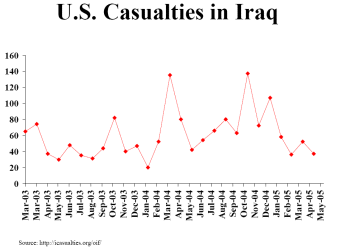
Economically, the US is running high deficits and the dollar is faltering in comparison to the Euro. High oil prices have brought down consumption and increased prices for goods, as the economy struggles to regain the glory of years passed. Overextended and alone the US cannot afford to engage itself in another Iraq type war. The public is not tolerant of casualties, as support for military campaigns highly decreases as soldiers die.
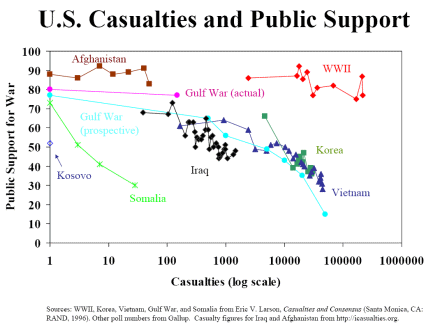
If it is going to deal with rogue nations it is going to have to convince the international community that their well being is at stake too. The administration should utilize all the sticky and soft power, along with its political and economic influence to help the US when it does use its military. Although the US may be the most powerful nation in the world, it must realize that it is no omnipotent and must sometimes look for international support in order to achieve its goals. Fighting against rogue nations in the wrong way could stall the growth of the US, allowing for other countries to make significant gains on the hyper power.
Conclusion
While many would argue that US faces the most significant threat to its power from the most powerful nations in the world, this paper asserts that the threat is really much lower. The US simply has too much economic, military, political and cultural leverage to be challenged directly by these countries. Furthermore, the US has skillfully linked its own well-being to that of other countries. This has removed almost any incentive for countries like China or entities like the EU to pursue any policy that would severely hurt the US. But, a majority of countries are not direct beneficiaries of this system, and some even suffer from it. It is these countries that are lead by authoritative regimes that pose the most danger to the US.
In this unipolar world, one of the leading concerns is that rogue nations will enter an influential role and instill chaos into the system. The world still faces uncertainty as to its future and still has to deal with containing weapons with awesome chemical, biological and nuclear power. As conflicts are confronted and rogue nations are restrained the world order will be challenged and the international security will consistently be threatened. More so than any terrorist group or internal conflict, the US and its aggression towards “rogue states” in the infamous “axis of evil” will lead the way in concern and publicity. However it is not certain as to which way the international order will turn; either the US will assert its position as the unipolar power of the world or it will start to decline. Either way, it is probable that rogue nations will seek proliferation and will try to force themselves into the exclusive club of states with weapons of overwhelming power in order to challenge the US supremacy. Yet if the giant continues to fight to maintain its authority with preemptive unilateral strikes, threats of mass destruction and a disregard for international law, international insecurity will prevail.
1 Joffe, Josef. (2002) “Defying History and Theory: The United states as the Last Remaining Superpower,” in G John Ikenberry , ed., America Unfivaled: The Future of the Balanace of Power (Cornell U.P., 2002)
2 Wohlforth, William. (1999) “The Stability of a Unipolar World,” International Security, pg. 11
3 Wohlforth, William. (1999) “The Stability of a Unipolar World,” International Security, pg. 16-18
4 Mead, Walter. (2004) “America’s Sticky Power,” Foreign Policy, pg. 51
5 Blacker, C.D. (1994) “A Typology of Post-Cold-War Conflicts.” U.S. Intervention in the Post-Cold War World: New Challenges and New Responses. A. Kanter and L.F. Brooks, eds. New York: W.W. Norton, pp. 47
6 Wohlforth, William. (1999) “The Stability of a Unipolar World,” International Security, pg. 36
7 Ikenberry, G. John. (2002) “America’s Imperial Ambition.” Foreign Affairs
8 Ikenberry, G. John. (2002) “America’s Imperial Ambition.” Foreign Affairs
“REFORMEMOS LA REFORMA DE LA UNIVERSIDAD”1 EDGAR MORIN LA
CONFÉRENCES D’EDGAR MORIN À LA BNF LES 17 18
CONFERENCIAS 1 EDGAR POSSANI UNIVERSITY OF SOUTHAMPTON INGLATERRA SHOULD
Tags: american foreign, the american, american, policy, world, edgar, unipolar, foreign
- DATE OF ISSUE 24 SEPTEMBER 2010 ASSYNT HOUSE BEECHWOOD
- MODELO DE DECLARACIÓN INSTITUCIONAL 25 DE NOVIEMBRE CON MOTIVO
- 13052006 TARIH VE 26167 SAYILI RESMI GAZETE KANUN ÇEVRE
- ZAŁĄCZNIK NR 1 DO ZAPYTANIA OFERTOWEGO NR 79DEGAS2020 FORMULARZ
- TRANSPORTO PRIEMONĖS PIRKIMO–PARDAVIMO SUTARTIS (DATA)
- NAZWA KIERUNKU TRANSPORT II STOPNIA POZIOM KSZTAŁCENIA POZIOM 6
- IMPRESO DE MATRICULA 4º CURSO CURSO ACADÉMICO 20212022 DATOS
- OPIS PRZEDMIOTU ZAMÓWIENIA OBSŁUGI I UTRZYMANIA SYSTEMU ODWODNIENIA UL
- UNIVERSITY OF NOTTINGHAM DEPARTMENT OF FRENCH AND FRANCOPHONE STUDIES
- 15%20-%20Odluka%20%20o%20prodaji%20gra%C4%91evinskog%20zemlji%C5%A1ta%20za%20formiranje%20gradili%C5%A1ta
- NAJBOLJŠI UČENCI NA OBISKU PRI ŽUPANU OB ZAKLJUČKU OSNOVNOŠOLSKEGA
- HOUSING AND PLANNING KEY FACTS ENGLAND ANALYTICAL SERVICES
- PROGRESS ON SMALLER CLASSES STATUS SCHOOL DIVISION SCHOOL DESCRIPTION
- DIRECCIÓN GENERAL DE JUVENTUD OLICITUD DE SUBVENCIÓN DESTINADA OBTENCIÓN
- COMPETENCY ASSESSMENT AND PERSONAL DEVELOPMENT PLANNING PARTICIPATING IN THE
- LAS SOLICITUDES DE DEVOLUCIÓN DE IMPUESTOS EFECTUADAS EN VIRTUD
- NOM ……………………… PRÉNOM …………………… ECRIS LE CONTRAIRE DES MOTS
- RAS RENTAL ACCOMMODATION SCHEME THE RENTAL ACCOMMODATION
- J UGAMOS Y TRABAJAMOS ESTE VERANO 3 AÑOS ESTIMADAS
- INSTITUTO DE DESARROLLO AGRARIO DIRECCIÓN DE PLANIFICACIÓN INSTITUCIONAL PLANES
- W WWESCUELAPRIMARIANET TERCERO DE PRIMARIA COMPLETA ESTOS DATOS 1
- ¿QUÉ ES LA INSUFICIENCIA CARDÍACA? LA INSUFICIENCIA CARDÍACA ES
- ENTRE LÍNEAS ANDA EL JUEGO LA LITERATURA INFANTIL Y
- REAL DECRETO 7602021 DE 31 DE AGOSTO POR EL
- RUE BELLIARDBELLIARDSTRAAT 101 — 1040 BRUXELLESBRUSSEL — BELGIQUEBELGIË —
- THE FILE PDEF OPTION THIS HASNT BEEN THOROUGHLY
- I NSTITUTO DE DESARROLLO RURAL PROVEEDURÍA INSTITUCIONAL SAN JOSÉ
- FORMATO DE PRESENTACIÓN DE INFORMES DE TRABAJOS PRÁCTICOS
- MANAGING INFORMATION SECURELY WHILE WORKING REMOTELY AS MORE AND
- ? SERVIMATIC (C) ALBERT RUIZ DEFINE(DEBUG FALSE)
INSTRUCCIONES DE USO ADVERTENCIA EL PRESENTE MODELO DE ACTA
 AKMENĖS RAJONO JAUNIMO IR SUAUGUSIŲJŲ ŠVIETIMO CENTRO NAUJOSIOS AKMENĖS
AKMENĖS RAJONO JAUNIMO IR SUAUGUSIŲJŲ ŠVIETIMO CENTRO NAUJOSIOS AKMENĖS c Areer Pathways a Griculture People in This Pathway
c Areer Pathways a Griculture People in This PathwayNYILATKOZAT A KIZÁRÓ OKOKRÓL NEM MAGYARORSZÁGI LETELEPEDÉSŰ SZERVEZET ESETÉN
ESTIMACIÓN DE EFECTOS LOCALES EN EL CAMPUS DE LA
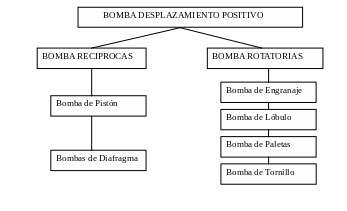 BOMBAS DE DESPLAZAMIENTO POSITIVO ESTAS BOMBAS GUÍAN AL FLUIDO
BOMBAS DE DESPLAZAMIENTO POSITIVO ESTAS BOMBAS GUÍAN AL FLUIDO PROYECTO EEMPLEO EL FRANCO REF AYF06001 V1
PROYECTO EEMPLEO EL FRANCO REF AYF06001 V1 FRAGMENTACIONES CONTAMINACIONES 1RODEA LA FORMA CORRECTA EL AGRI
FRAGMENTACIONES CONTAMINACIONES 1RODEA LA FORMA CORRECTA EL AGRI GOLF LAS REGLAS OFICIALES DE DEPORTES DE OLIMPIADAS ESPECIALES
GOLF LAS REGLAS OFICIALES DE DEPORTES DE OLIMPIADAS ESPECIALESBOARD FOR PROFESSIONAL ENGINEERS MINUTES – SEPTEMBER 10 2020
МИНИСТЕРСТВО ОБРАЗОВАНИЯ КИРОВСКОЙ ОБЛАСТИ КИРОВСКОЕ ОБЛАСТНОЕ ГОСУДАРСТВЕННОЕ ПРОФЕССИОНАЛЬНОЕ ОБРАЗОВАТЕЛЬНОЕ
JURY OF 1ST ROUND EU PARTNERS LNU DR OLA
 LINKS SIGNUP FORM THIS LINKS SIGNUP FORM PROVIDES ESSENTIAL
LINKS SIGNUP FORM THIS LINKS SIGNUP FORM PROVIDES ESSENTIAL UPRAVLJANJE KVALITETOM VJEŽBE BROJ 2 TEMA PRIMJENA OBRAZACA ZA
UPRAVLJANJE KVALITETOM VJEŽBE BROJ 2 TEMA PRIMJENA OBRAZACA ZA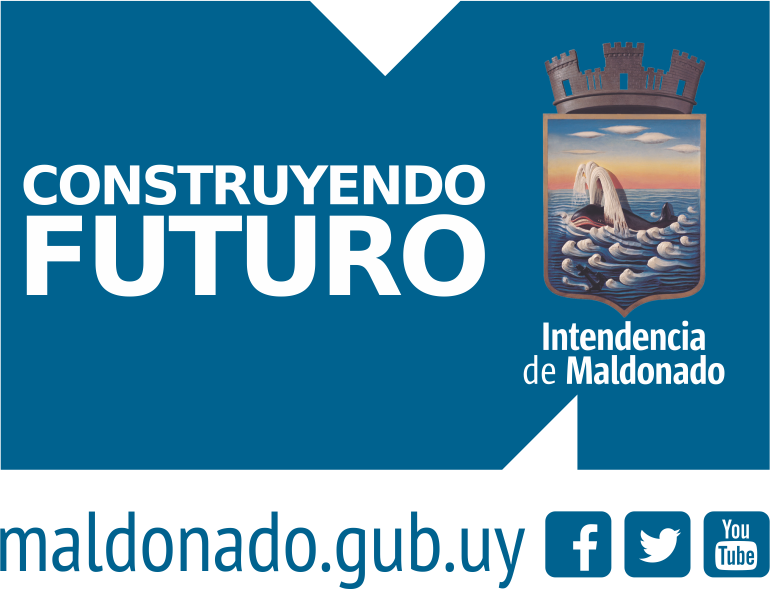 DESLINDE DE RESPONSABILIDAD NÚMERO… LA INFORMACIÓN DE ESTE DOCUMENTO
DESLINDE DE RESPONSABILIDAD NÚMERO… LA INFORMACIÓN DE ESTE DOCUMENTO1 PIELIKUMA PAPILDINĀJUMA 2 DAĻA SASKAŅĀ AR MEMORANDU VEIKTO
 LETCHWORTH EASTER HOLIDAY ACTIVITIES APRIL 2016 THE INFORMATION PROVIDED
LETCHWORTH EASTER HOLIDAY ACTIVITIES APRIL 2016 THE INFORMATION PROVIDED S TONOTENISKI KLUB “BORAC” BANJA LUKA KRFSKA 80 78000
S TONOTENISKI KLUB “BORAC” BANJA LUKA KRFSKA 80 78000 MENTOR RECRUITMENT GUIDELINES MENTOR RECRUITMENT GUIDELINES 1 REPORTING
MENTOR RECRUITMENT GUIDELINES MENTOR RECRUITMENT GUIDELINES 1 REPORTING CELEBRACIÓN BANQUETE DE BODA EN LA REAL SOCIEDAD HÍPICA
CELEBRACIÓN BANQUETE DE BODA EN LA REAL SOCIEDAD HÍPICA